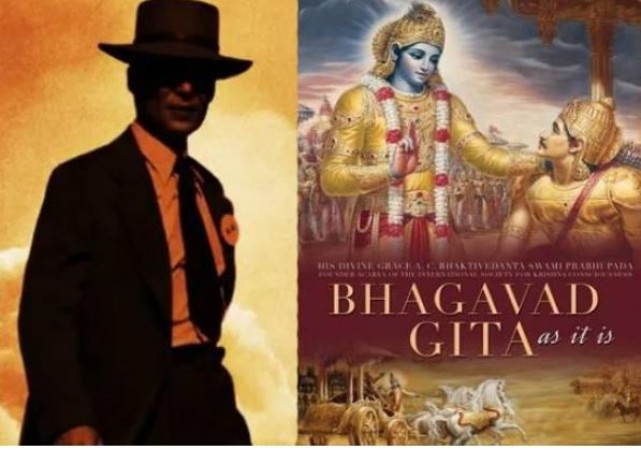
A highly anticipated film, "Oppenheimer," directed by Christopher Nolan, is set to be released on July 21. This film delves into the life of J Robert Oppenheimer, an American theoretical physicist renowned for his pivotal role in developing the atomic bomb.
As the Director of the Los Alamos Laboratory in New Mexico, Oppenheimer led the famous "Manhattan Project," a team of scientists working to harness the advancements in nuclear physics for military purposes during the 20th century.
However, witnessing the devastating power of nuclear weapons firsthand changed Oppenheimer's perspective. He became a staunch advocate against the spread of these weapons and the escalating nuclear arms race between the United States and the Soviet Union. This is the story of how the man known as the "Father of the Atomic Bomb" transformed into a vocal proponent of nuclear non-proliferation.
The Atomic Age began on July 16, 1945, with the Trinity Test—a groundbreaking atomic bomb detonation conducted around 340 kilometers south of Los Alamos. Less than a month later, the United States dropped atomic bombs on Hiroshima (August 6) and Nagasaki (August 9). These bombings caused catastrophic devastation, claiming the lives of over 200,000 people, primarily innocent civilians, who suffered from the long-term effects of radiation exposure.
The bombings marked the only instances where atomic weapons have been used in warfare, but they initiated a global nuclear arms race that altered the course of geopolitics forever. The Soviets conducted their first atomic bomb test in 1949, followed by the British, French, and Chinese in subsequent years. These weapons grew more destructive over time, creating an atmosphere of mutual assured destruction.
Oppenheimer, despite his pivotal role, wrestled with the moral implications of developing weapons capable of annihilating humanity. After the Trinity Test, he sought solace and meaning in the philosophy of the Bhagavad Gita. Quoting the Gita, Oppenheimer referenced Krishna's dialogue with Arjuna, stating, "Now, I am become Death, the destroyer of worlds." This quote has since become synonymous with the terrifying and awe-inspiring potential of nuclear weapons, offering insight into Oppenheimer's own understanding of the atomic bomb's destructive power.
Historian James A Hijiya, in his paper 'The Gita of J Robert Oppenheimer,' highlighted how Oppenheimer used the Bhagavad Gita to find solace and reconcile his conscience. Hijiya observed that Oppenheimer saw parallels between his situation and Arjuna's, where the prince was forced to make difficult choices in a conflict over a kingdom's inheritance. Oppenheimer questioned whether it was wrong for him to build a weapon to protect against the German and Japanese governments, who were seeking world domination.
Oppenheimer's opposition to nuclear weapons intensified after President Harry S Truman's decision to use the atomic bomb on Japan, a nation already on the verge of defeat. Oppenheimer expressed his deep dissatisfaction and even told President Truman that they both had "blood on their hands." In a published paper in 1946, Oppenheimer described the atomic bomb as a weapon used by aggressors, characterized by elements of surprise and terror. He emphasized the urgent need for global responsibility and cooperation to address the immense threat posed by atomic weapons.
Oppenheimer's journey from leading the development of the atomic bomb to becoming an advocate for nuclear non-proliferation exemplifies the moral complexities of scientific progress. His legacy prompts us to reflect on the devastating consequences of nuclear weapons and the importance of working together to build a safer and nuclear-free world.
Robert Downey Jr to move toward the new movie
Leonardo and Gigi found coming Together again after a long time
Here's Why: Alia Bhatt co-star of Hearts of Stone Gal Gadot, and Jamie Dornan can't stop laughing